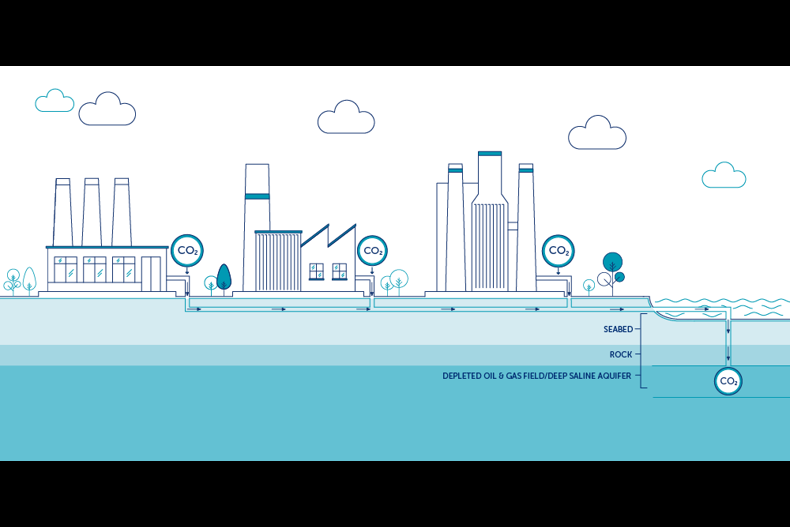
SSE Thermal’s plans to deliver the UK’s first power stations equipped with carbon capture and storage (CCS) technology took a major step forward today as two vital low-carbon infrastructure projects secured government funding.
As part of Innovate UK’s Industrial Strategy Challenge Fund, the UK Government has today announced support for both the Zero Carbon Humber (ZCH) and Scotland’s Net Zero Infrastructure (SNZI) cluster projects. These two world-leading partnerships aim to decarbonise energy and industry in the Humber and Scotland respectively through the delivery of shared CCS and hydrogen infrastructure.
In the Humber, SSE Thermal is currently developing Keadby 3 in North Lincolnshire, which will plug into the shared CO2 pipeline being delivered through the Zero Carbon Humber partnership. In the north-east of Scotland, the company is progressing Peterhead 2 in Aberdeenshire, which will be a key early customer for the Acorn CO2 transport and storage project, led by Pale Blue Dot Energy.
As the UK transitions to net zero by 2050, flexible gas-fired power stations will continue to be required to complement intermittent renewable energy and ensure security of supply. By equipping new power stations like Keadby 3 and Peterhead 2 with CCS technology, SSE Thermal can remove up to 90% of the emissions produced, while continuing to provide flexible and reliable capacity to keep the lights on across the UK.
Keadby 3 and Peterhead 2 will each capture more than 1.5 million tonnes of carbon dioxide annually, a combined 30% of the overall target for 2030 set out in the Prime Minister’s Ten-Point Plan last year. Once captured, the carbon dioxide will be transported through shared pipelines before being stored safely offshore. The Humber and Scotland have natural advantages in CCS technology with existing storage options in the form of depleted oil and gas fields and deep saline aquifers in the North Sea.
As the technology for CCS in power generation is well-advanced, SSE Thermal’s projects can be deployed early, stimulating the demand for the necessary shared infrastructure, which other users can then plug into to capture and store their emissions. In achieving a net zero economy, CCS technology will be vital in decarbonising power generation, heavy industry and hard-to-reach sectors while protecting and creating thousands of high-quality jobs across the UK’s industrial regions.
On announcing the funding, UK Business and Energy Secretary Kwasi Kwarteng, said:
“While reaching our climate targets will require extensive change across our economy, we must do so in a way that protects jobs, creates new industries and attracts inward investment - without pushing emissions and business abroad. Ahead of COP26, the UK is showing the world how we can cut emissions, create jobs and unleash private investment and economic growth. Today’s strategy builds on this winning formula as we transition low carbon and renewable energy sources, while supporting the competitiveness of Britain’s industrial base.”
Stephen Wheeler, Managing Director of SSE Thermal, said:
“Today’s announcement marks a major step forward in the delivery of cutting-edge carbon capture projects like our own Keadby 3 and Peterhead 2 Power Stations. By delivering essential CCS and hydrogen infrastructure in areas like the Humber and the north-east of Scotland, we can decarbonise the UK’s industrial heartlands and accelerate the transition to a net zero future. With the UK hosting COP26 this November, these cluster projects are a prime example of how we can work together to deliver on our climate commitments, while ensuring a green economic recovery and a just transition for our communities.”

